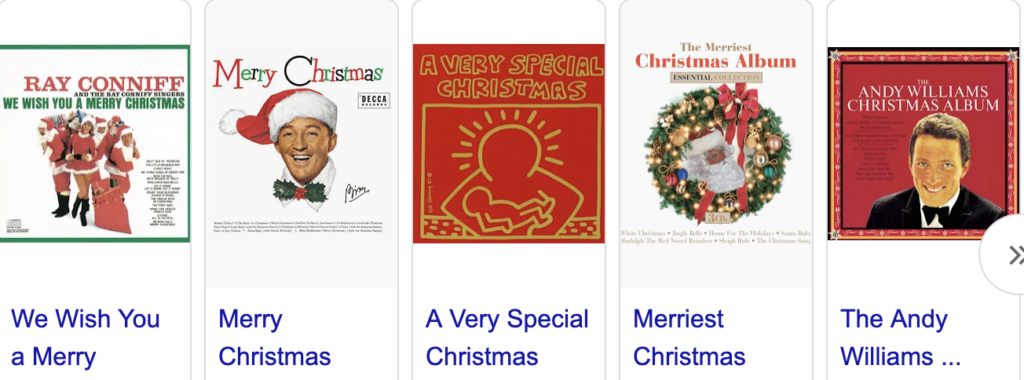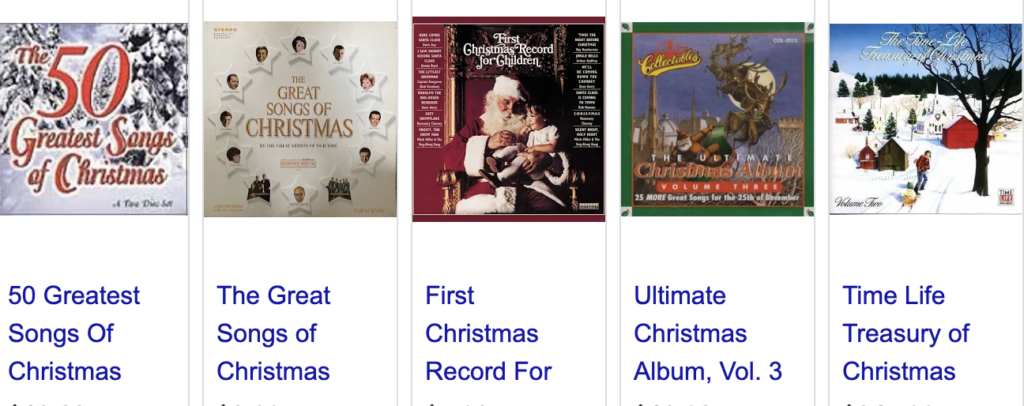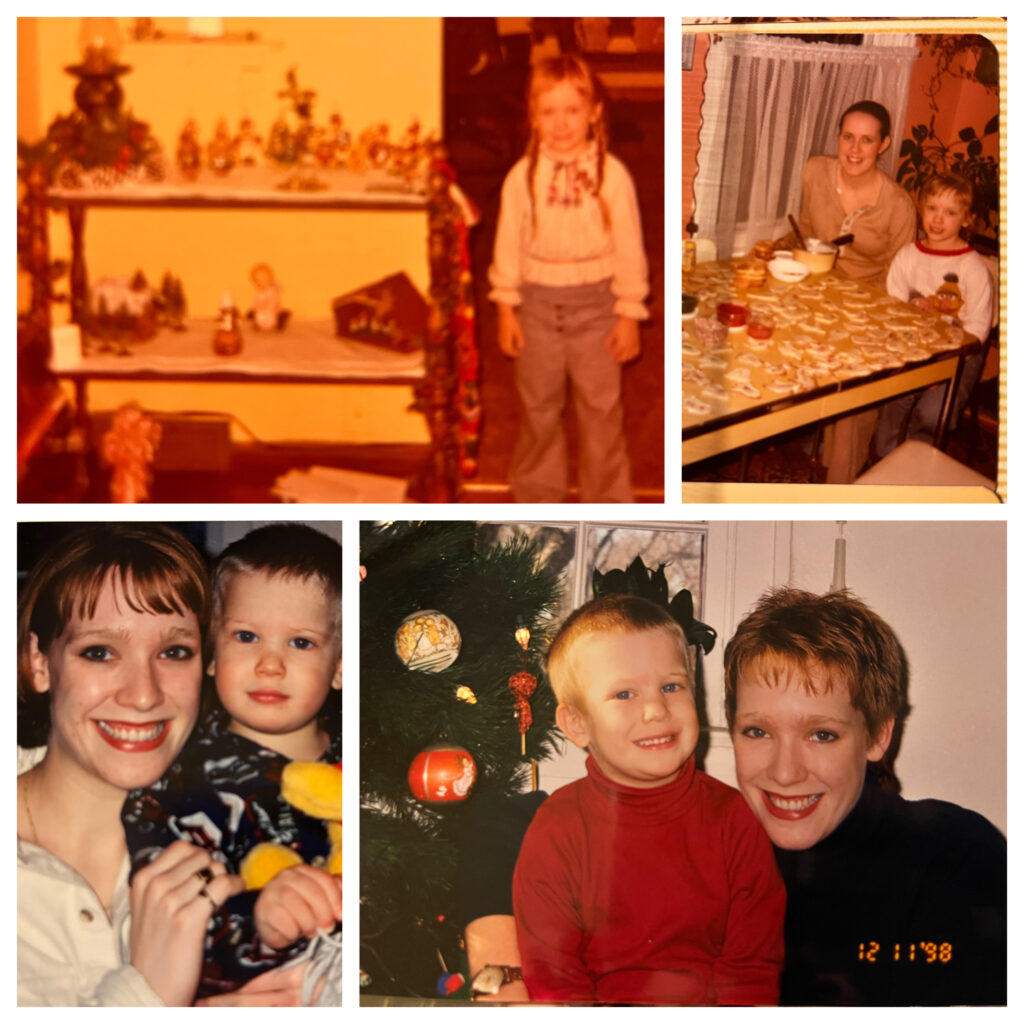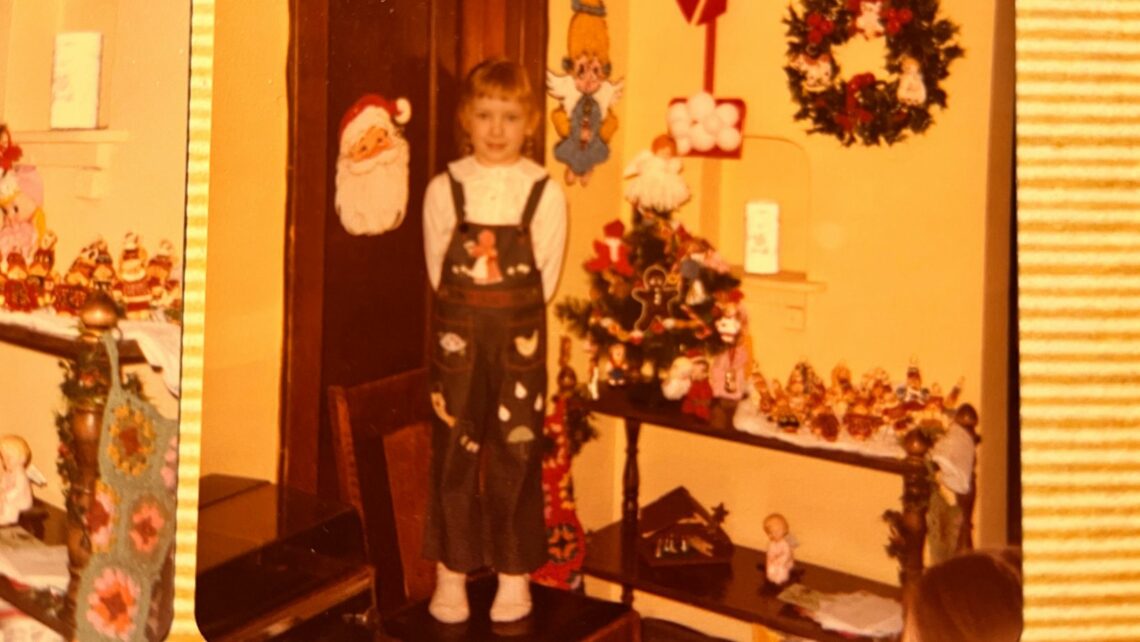Matt Von Pinnon, the editor of our regional newspaper, wrote his Friday wrap up piece this week about listening to (and enjoying) Bing Crosby’s “White Christmas” with his nearly teen-aged daughter, who was less than impressed.
That got me thinking about the Christmas music of my early years: the mid 1970s, incidentally the same era as Matt’s since we went to high school together. When I was very little, my mom, dad and I lived in a glorious, old, two-story house in tiny Wyndmere, ND, a very rural town in the southwest corner of our very rural state. The population in the years we lived there was around 515.
My dad’s first teaching/coaching job after graduation was there, and it’s those six years that live largest and most happy in my memories. I’ve written many times about that house and my memories of my childhood there. I loved every creak and crackle in that house, every nook and cranny. I delighted in being with my mom all day and waiting for my dad to come home after school to play with me in my playroom or outside.
We had a great big upright piano that had been saved from an early retirement to the local dump. I have incredibly strong memories of my mother whiling away the time playing Ferrante and Teischer, popular music by the likes of Roberta Flack, Petula Clark, the Carpenters and John Denver as well as Sunday School songs. I took my first piano lessons on that piano, not that I have anything to show for it today.
We had a record player (I mean, didn’t everyone?) and a collection of records that lived in a cabinet underneath the player (you can just make it out in the lower left corner of the main photo from Christmas 1976 or 77). I had a few records of my own: “Rusty in Orchestraville,” a Peter Cottontail one, a Disney two-album set that opened up like a book as well as a Sesame Street album that had a clock with moving arms on the front cover. They were magical to me.
But far and away my most favorite records were our Christmas ones. Ray Conniff and the Ray Conniff Singers and Bing Crosby’s “Merry Christmas” are two I clearly remember. We had a bunch of compilation albums. I mean, really, is there a better song than “Christmas is the Warmest Time of the Year” (which, it turns out, is by a guy named Ed Ames. Who knew?!?! My whole life I thought that was Andy Williams.)? Or Nat King Cole’s “A Cradle in Bethlehem”? Or Julie Andrews’ “Irish Carol” (foreshadowing, perhaps???)? OK, I’ll stop.
A quick search this morning for Christmas records from the 1970s turns up album covers, many of which I think I remember.


The covers of the albums were so beautiful. Lots of old time-y images of sleigh rides in the Victorian era, or close up photos of Christmas trees and wreaths and images of Santa and more. I remember looking at them longingly every year, sitting on the floor of that drafty, wonderful house where I was safe, loved and adored.
Even just seeing these various album covers brought back a sensory overload from about 1975. A scratchy (I’m sure it was acrylic) pale green, kind of knock off Fair Isle sweater and thick red corduroy pants. My bangs, so staticky on my forehead. Warm air emanating from the vents even as cold air moved in through the thin windows. The smell of homemade bread and granola from the kitchen. So many plants and giant, metallic painted keys hanging up as decoration. The shelves where various decorations announced the season, as evidenced in the photo.
Matt reflected, “If we’re being honest, ‘White Christmas’ is kind of weird in today’s world. But what hit me then and there – and I have a lot of these revelations as I get older – is that ‘White Christmas’ could eventually become extinct. Kids today don’t have to listen to their parents’ music like we did. Most kids have any music of their choosing at their fingertips.
I suspect I enjoy listening to ‘White Christmas’ because my parents listened to it and so on. It’s a common thread, and nostalgia is a big part of Christmas. We tend to reflect on the past this time of year because Christmas is most magical when we’re young.”
And as I read this, it dawned on me that my son, much older than Matt’s daughter, also very likely doesn’t know the Christmas music of my childhood, the songs I adore (and know by heart) more for the memories they evoke than the actual music. Although I’ll fight anyone who wants to say that the above-mentioned pieces don’t put modern Christmas music to absolute shame. Fight you, I say!
I immediately pulled out the cassette tapes of these albums my dad made for me in the 1980s. Incredibly, we still have a working tape player, and perhaps even more incredibly, the tapes are playing just fine. I’ve had them on pretty constant play ever since. Although I had forgotten that you have to physically turn cassette tapes over, which is kind of irritating compared to our modern streaming services, where all we have to do is tolerate a few ads or pay a monthly fee.
I’m listening to music I haven’t encountered for decades, and it has me moving in and out of time, one minute the little girl standing next to the freshly decorated shelves or decorating Christmas cookies with her mom while these records play in the background. The next minute the young mom decorating the tree with her toddler, listening to Christmas music through her junior high purple cassette tape player. And then the decidedly middle-aged woman whose grown-up son is thousands of miles away, hearing these songs again and turning the cassette tape of her memories to start her journey all over again.

What struck me in reading Matt’s words was that it’s not just “White Christmas” that will likely go extinct. I don’t mean to be macabre, but we will, too. Our time and relevance on this planet is fleeting in the grand scheme of things. Cherish your memories of the times and people who have gone into the ether of remembrance. Share the stories and music of your childhood, even if those around you think it’s weird. And be as present as you possibly can in whatever place you are. It will never come again, and one day, this Christmas and we, like all the others, will be resigned to the long history of the past.





